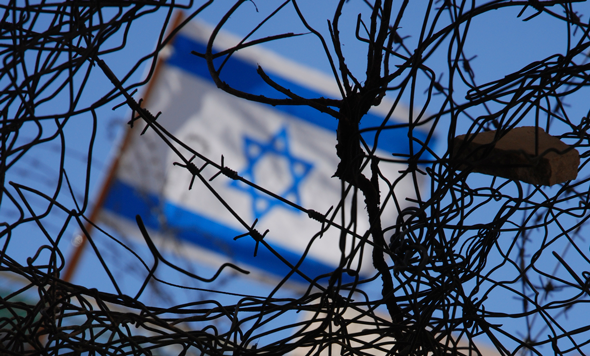Palestine: Life Under Occupation
I’m not going to write about the history of the conflict in Israel-Palestine. I’m not going to write about the politics and policies. I’m not going to write about the peace processes and the one-state solution or the two-state solution. I will not write about theories or discourses of violence and conflict. Voices get lost in the noise when talking about these issues. All of these concerns are important to address, but what I want to do, is convey to you how the Occupation of Palestine affects people daily.
I travelled to Israel/Palestine this summer and participated in a Conference about the conflict and an extensive educational tour of the West Bank and Gaza Strip. I met with Palestinian and Israeli NGO’s that are working for peace, government representatives, refugee camps, writers and speakers. But the most educational part of my trip for me was spending time with the Palestinians informally, as friends, as equals, hearing their stories of suffering under Occupation. Every single Palestinian has a story to tell and has been deeply affected by Israeli Occupation.
 Hebron residents have hung fencing over the old market to catch trash, stones, and bricks thrown down by settlers who have moved into the top floors of the buildings by force.
Hebron residents have hung fencing over the old market to catch trash, stones, and bricks thrown down by settlers who have moved into the top floors of the buildings by force.
I met one young woman from Taybeh who works in Jerusalem. She wakes up everyday at 4:00am to get to work for 8:00am. It should take 20-30 minutes to drive from her home to work, but she has to wait in a checkpoint for hours to get into Jerusalem. This is not a personal issue. This is a structural issue – the systematic attempt to inhibit the movement of Palestinians and fragment the people. Israel continues to impose restrictions on Palestinian movement throughout the West Bank, separating the West Bank into six separate areas. It is extremely difficult to get to a different area of the West Bank because of permanent and flying (moving) checkpoints. Add to this, the Separation Barrier built in 2002, physical obstacles, roads that Palestinians are forbidden to use, and a strict permit rule, designating certain Palestinian permits forbidden in certain areas. These barriers to freedom of movement make living in Israel-Palestine like living in apartheid.
 A wall in Hebron covered in pro-Israeli graffiti and “Free Palestine.”
A wall in Hebron covered in pro-Israeli graffiti and “Free Palestine.”
The reduction in freedom of movement impacts Palestinian’s living conditions, affecting their economy, families, and healthcare systems. Patients have difficulty accessing healthcare. While I was waiting at a checkpoint to get from Ramallah into Jerusalem, I met a young girl waiting in line to get to the hospital to receive chemotherapy for her cancer. Each time she visits the hospital (which is a lot) she has to wait at a checkpoint sometimes for up to three hours to get there. The right to health has been severely dishonoured by road blockages, checkpoints, and the Wall. In addition, while in Hebron, I experienced a complete city shutdown of checkpoints. No one could get in or out of Hebron, and one woman gave birth at a checkpoint trying to reach a hospital. Imagine!
The Israeli control of Palestinians is the most intense in the Gaza strip. While there, we witnessed the devastation and humanitarian need. It is nicknamed the ‘world’s biggest prison’ with 1.5 million Palestinians trapped there. Although the Palestinian political group, Hamas, now leads Gaza, Israel still controls it from the land outside, air above, and sea beside. Medicine is not allowed in, and the hospitals are running short. No gasoline can get in through the borders, and they now run their cars on cooking oil and propane, or use donkeys and carts. More than 80% of Gazans now depend on direct assistance from humanitarian agencies to keep them from starving. We visited a church that was bombed a few years ago and heard the congregations’ daily struggles. We were shocked and emotional, but they said “this is our lives…this is normal for us.”
 An Israeli border guard checking a Palestinian ID card at a check point between Bethlehem and Jerusalem. You can identify the ID card because it’s green. You can also see the permit required.
An Israeli border guard checking a Palestinian ID card at a check point between Bethlehem and Jerusalem. You can identify the ID card because it’s green. You can also see the permit required.
The point I’m making here is that these stories of struggle are widespread and continue to happen on a regular basis. This should not be normal. Living under military Occupation and being subjected to oppression should not be normal. When will the world stand up for Palestinians’ rights? That’s what I want to know.